Vipp partners with Annemette Kissow to launch first ceramics line
Homeware retailer Vipp has partnered with Danish ceramicist Annemette Kissow to launch a seven-piece breakfast range (+ slideshow).
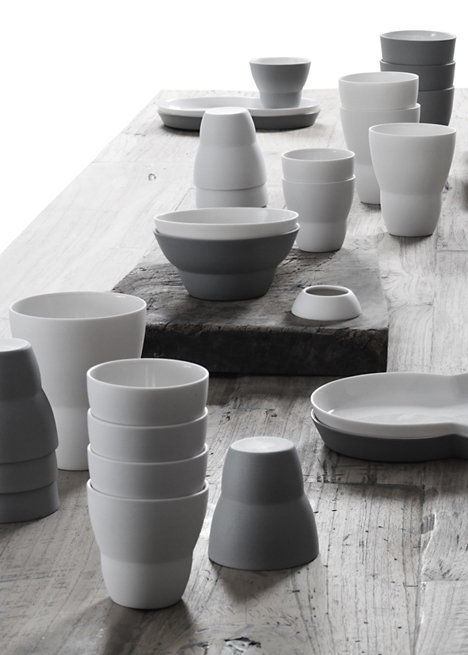
Better known for its steel and metal products, Vipp's first venture into ceramics offers a range of pieces intended to appeal to breakfast and brunch-lovers.
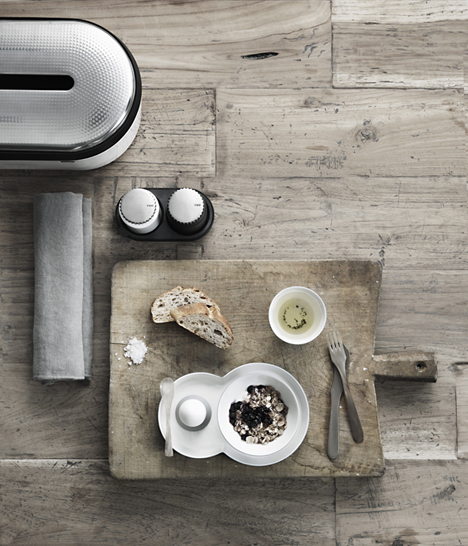
The line made in collaboration with Kissow includes bowls, a milk jug, a plate shaped like a figure of eight, as well as espresso, coffee and tea cups. The traditional egg cup has also been reimagined as a ceramic "egg ring".
Pieces are available in grey or white and have been hand cast in porcelain. Each of the items has glazed interiors and hand-polished matt exteriors intersect with a single line.
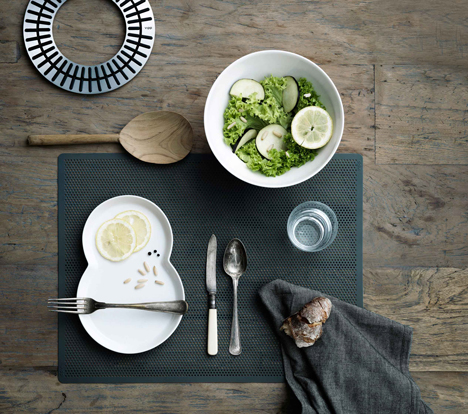
"Since I met Annemette Kissow in 2005, I have admired her work, so it was an evident choice to team up with her when we decided to add a ceramics collection to Vipp's kitchen concept," said CEO Jette Egelund.
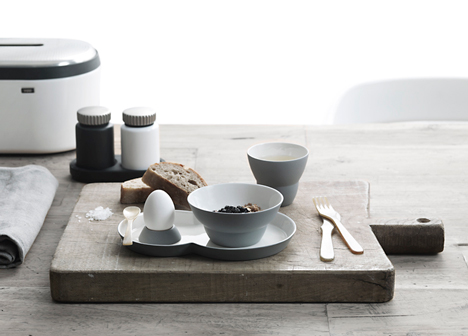
"Even though we are working with a completely different material, the outcome carries the same DNA as when we process steel and aluminium – a product stripped to the bone with a minimalistic look where material and processing define the design," added the brand's chief designer Morten Bo Jensen.
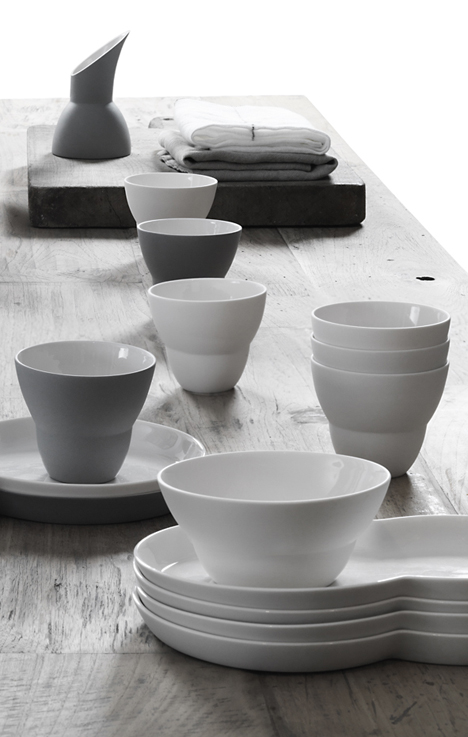
Vipp first made its mark in the 1930s when blacksmith Holder Nielsen designed an enamel rubbish bin for his wife's salon.
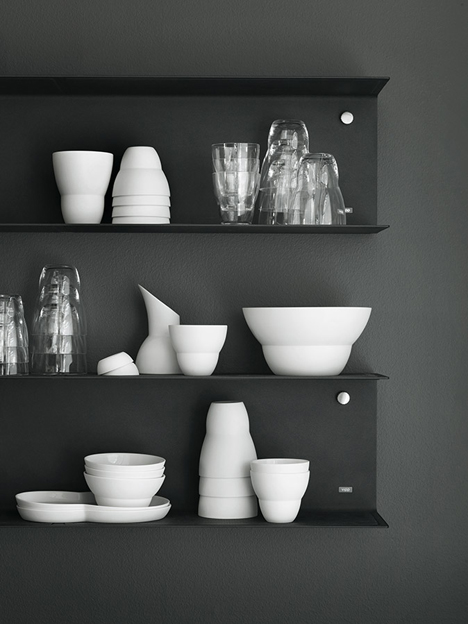
Quickly gaining popularity with the locals of Randers, Denmark, Nielsen set up a factory to produce the bin, which has since been added to the Museum of Modern Art's collection.
Related content: see more ceramics
The company takes its name from the Danish word for the opening and closing movement performed by a bin lid.
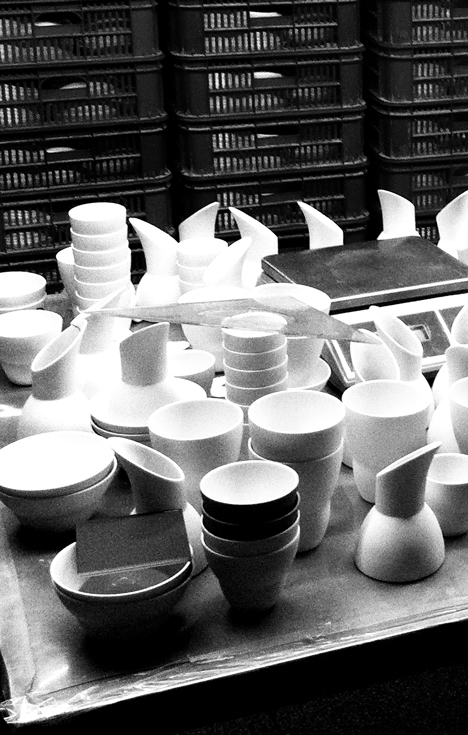
Kissow studied at the Danish Design School in Copenhagen in the 1990s, founded her own workshop in 1995 and later opened a shop to sell her products in the city. In 2004 she was awarded the Formland Design Award for Danish-designed home accessories.
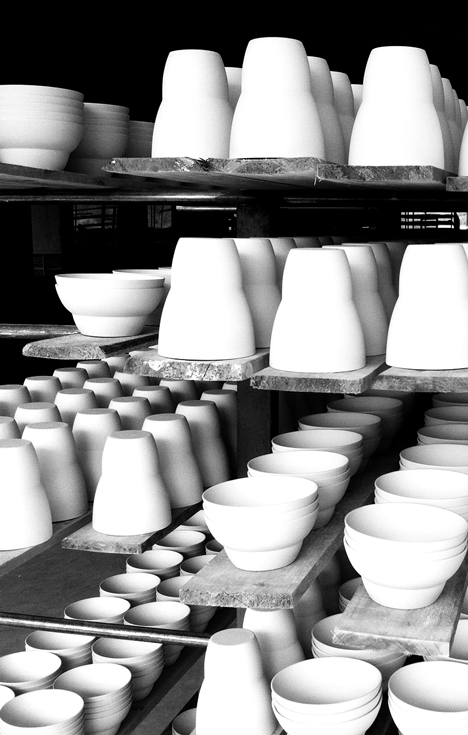
Elsewhere in the world of ceramics, Swedish designer Jomi Evers Solheim recently used water-filled balloons to create moulds for a collection of globular porcelain vases, while Ian Anderson's ceramics studio deformed traditional shapes to develop a range of porcelain tableware.